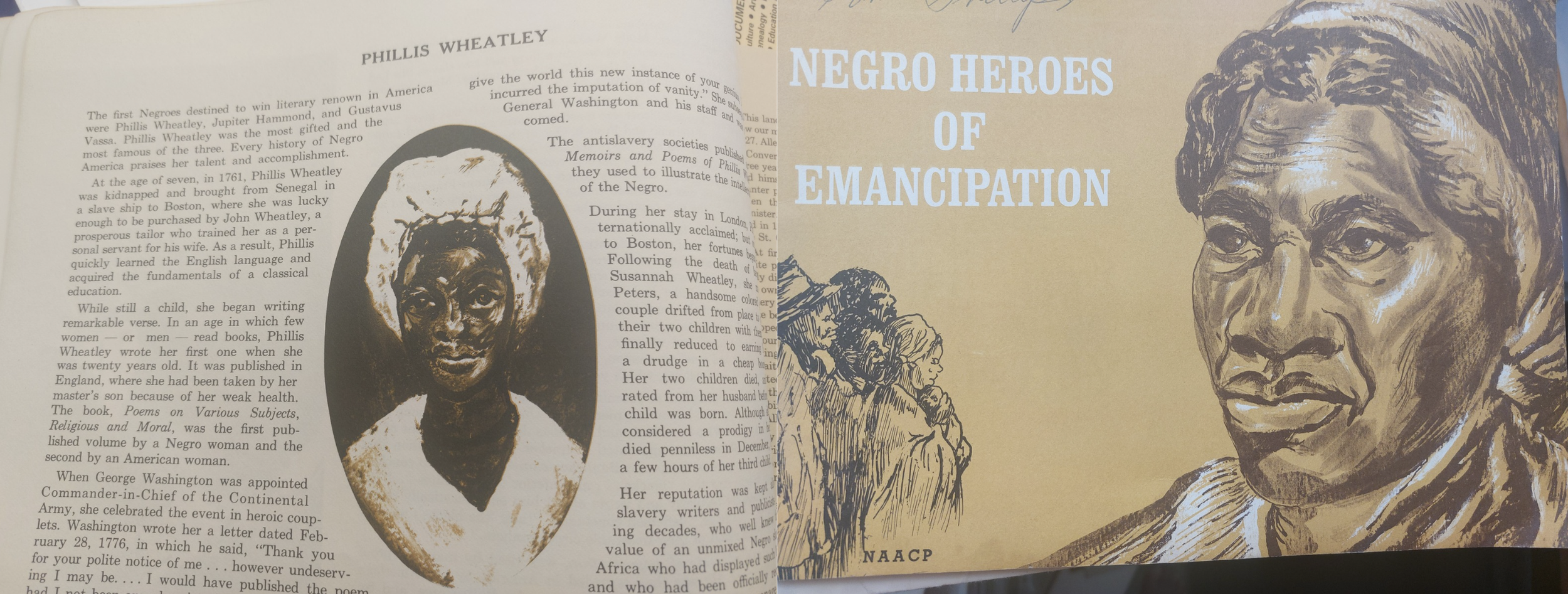June 2025
Celebrating Juneteenth Through Negro Heroes of Emancipation: Spotlight on Richard Allen & Phyllis Wheatley
Published in 1964 by the NAACP, Negro Heroes of Emancipation stands as a pivotal archival work that chronicles the lives and legacies of Black figures who fought for freedom during the era of slavery and emancipation. Released at the height of the Civil Rights Movement, this book captures the resilience and triumphs of those who paved the way for liberation, making it a fitting tribute to the spirit of Juneteenth—the historic day in 1865 when enslaved African Americans in Texas learned of their freedom, marking a profound moment of reunion and autonomy.
Among the heroes featured in the book is Richard Allen, a Philadelphia resident and the founder of the African Methodist Episcopal (AME) Church. Born into slavery in 1760, Allen purchased his freedom in 1783 and went on to become a leading voice for Black self-determination. In 1787, he founded the Free African Society in Philadelphia, a mutual aid organization that supported Black communities, and in 1816, he established the AME Church, the first independent Black denomination in the United States.
Allen’s contributions, as highlighted in Negro Heroes of Emancipation, embody the Juneteenth ethos of reclaiming agency and building community in the face of oppression. His work provided spiritual and social refuge for African Americans, fostering the kind of kinship and resilience that Juneteenth celebrates—families and communities coming together to honor their shared humanity after the shackles of slavery were broken.
Juxtaposition and Similarities: Phyllis Wheatley vs. Richard Allen
Phyllis Wheatley, another luminary featured in Negro Heroes of Emancipation, offers a compelling contrast and parallel to Richard Allen’s contributions. Enslaved in Boston and later manumitted, Wheatley became the first published African American female poet with her 1773 work, Poems on Various Subjects, Religious and Moral. Her poetry, infused with Christian themes and a call for moral awakening, subtly challenged the institution of slavery by asserting Black intellectual and spiritual capacity.
Like Allen, Wheatley used her talents to uplift her community, though her medium was the written word rather than institutional leadership.
Both figures share striking similarities in their use of faith as a tool for emancipation. Allen’s AME Church provided a physical and spiritual haven, while Wheatley’s verses inspired a moral reckoning that questioned the ethics of slavery. Yet, their approaches diverge: Allen’s work was hands-on, building tangible community structures, whereas Wheatley’s influence was intellectual, reaching audiences through print to shift perceptions. Together, their legacies in Negro Heroes of Emancipation underscore the multifaceted fight for freedom, resonating with Juneteenth’s celebration of diverse paths to liberation.
Negro Heroes of Emancipation serves as a bridge between past and present, reminding us that Juneteenth is not only a celebration of freedom but also a call to continue the work of heroes like Richard Allen and Phyllis Wheatley. By uplifting Black voices and institutions, their legacies reflect the enduring fight for justice and unity that defines both the book and the holiday.
By: Monica O. Montgomery


